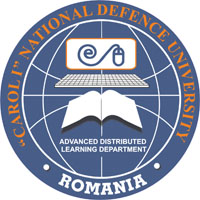A SURVEY ON GENERATIVE LEARNING OBJECTS
A SURVEY ON GENERATIVE LEARNING OBJECTS
Author(s): Ciprian-Bogdan ChirilăSubject(s): Education
Published by: Carol I National Defence University Publishing House
Keywords: generative learning objects; meta-programing; reusable didactic patterns
Summary/Abstract: Learning objects (LOs) is a field of e-learning which is open for research and has a lot of potential in the creation, adaptation, testing, generation of learning content. There are standards that describe LOs in a general manner like IEEE LOM, SCORM or Dublin Core. Among these LOs there is a special kind of LOs named generative learning objects (GLOs) which present a higher degree of reuse and are considered to be the second generation LOs. The principles behind the GLO concept are taken from software engineering namely design for reuse and design with reuse. There are several approaches regarding GLOs. The first approach belongs to the pioneers of the concept and is based on reusable pedagogical patterns implemented in tools like GLOMaker. A second approach belongs to a group of researchers from the University of Vilnius which rely their implementation on parameter generated software inspired from software product lines and metaprogramming. The approach is targeted towards learning computer science disciplines, namely programming using robots. In our approach, the third one, we use metaprogramming in the context of models which we consider to be more expressive and flexible but demand a higher level of qualification for the GLO author. GLOs are not heavily used in practice because of their complexity, lack of supporting tools, testing difficulties. In this paper we intend to identify the main issues with GLOs and to discuss the main challenges, possible solutions and limitations. Understanding better GLOs problems may help in ameliorating those using new tools, software wizards and in increasing their use in practice in current learning management systems.
Journal: Conference proceedings of »eLearning and Software for Education« (eLSE)
- Issue Year: 11/2015
- Issue No: 02
- Page Range: 550-555
- Page Count: 6

